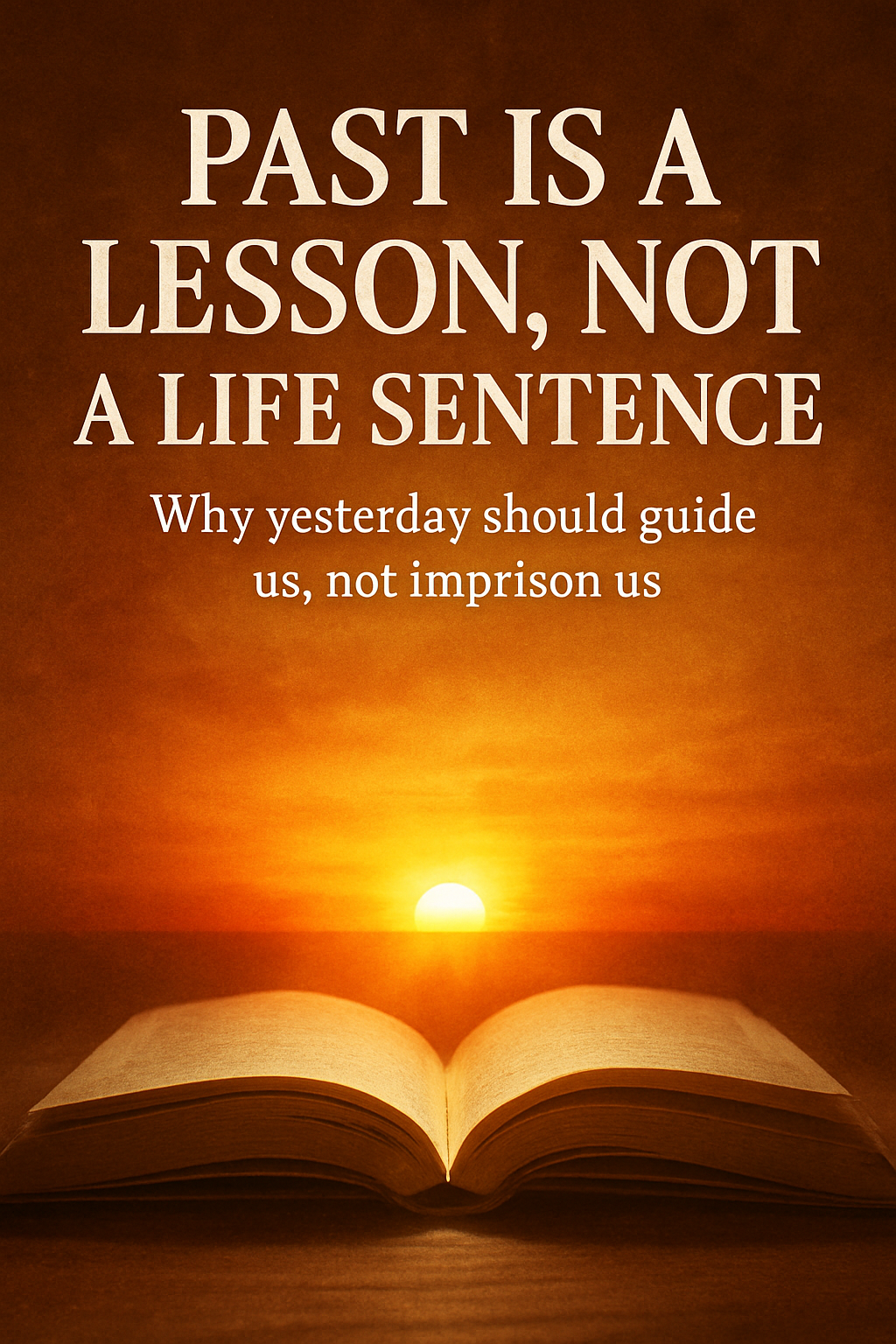
The past has a peculiar habit of visiting us uninvited. It arrives in the silence of the night, in the pause between conversations, and in the sudden memory stirred by a familiar scent. For some, it comes as a gentle reminder; for others, it drags chains of regret. Yet to live shackled to what has already gone is to confuse a chapter with the entire book. As an old proverb whispers, “Do not look back unless it is to derive useful lessons from past errors.”
History, both personal and collective, was never meant to be a prison. It is a teacher, sometimes harsh, sometimes kind, but always pointing toward a path beyond itself. The ancient Chinese saying tells us, “The best time to plant a tree was twenty years ago. The second-best time is now.” If one clings too tightly to yesterday, the soil of the present remains barren, waiting for seeds that never arrive.
Consider the lives of great figures who stumbled before they soared. Abraham Lincoln failed in business, lost elections, and endured repeated setbacks, yet his past did not condemn him to obscurity. He treated failure as a tutor, not as a jailer. Similarly, Thomas Edison, when asked about his countless failed attempts before inventing the light bulb, replied, “I have not failed. I have just found 10,000 ways that will not work.” Such voices remind us that mistakes are not verdicts but instructions.
There is wisdom in the African proverb: “Smooth seas do not make skillful sailors.” A life without scars may look enviable, yet it lacks the resilience born of trials. Our errors, betrayals, and disappointments carve into us the knowledge that books cannot teach. To view the past as a sentence is to refuse its gift. To view it as a lesson is to turn every scar into a compass.
Of course, the temptation to dwell is strong. Regret loves to linger. One recalls words unspoken, opportunities wasted, or trust misplaced. These memories weigh like stones in the pocket of the traveler. Yet as the Irish saying reminds us, “You will never plough a field by turning it over in your mind.” No crop grows from staring at unploughed soil. No future is shaped by rehearsing what has already been written.
Literature itself is replete with characters imprisoned by their pasts. Hamlet, in his indecision, cannot break free from the shadow of betrayal and murder. Miss Havisham, in Dickens’s Great Expectations, lives in the ruins of her abandoned wedding, her clocks frozen in a perpetual mourning. Their tragedy is not in what happened, but in their refusal to live beyond what happened. They remind us of the danger of confusing memory with destiny.
At the same time, redemption arcs in literature show us the opposite. Jean Valjean in Les Misérables begins as a convict but does not end as one. He is pursued by his past, yet he reshapes his identity through compassion and sacrifice. His life affirms the truth that while we cannot alter what has been, we can decide what is to come.
The poet Rumi once wrote, “Try not to resist the changes that come your way. Instead, let life live through you. And do not worry that your life is turning upside down. How do you know that the side you are used to is better than the one to come?” These words speak directly to the heart that clings to the familiar sorrow of yesterday rather than embracing the uncertain promise of tomorrow.
Practical wisdom also supports this philosophy. Modern psychology teaches that dwelling endlessly on past mistakes fosters guilt and depression, while reframing them as lessons encourages growth. It is no accident that therapists often encourage writing letters of forgiveness to oneself, not for the sake of excusing the past but for the sake of freeing the present.
In daily life, we must learn to carry the past as one carries a lamp. It lights the way ahead but is not the road itself. To mistake it for the journey is to remain standing in one place, illuminated yet unmoving. As the Spanish proverb wisely says, “He who does not look ahead remains behind.”
To live as though the past were a life sentence is to dishonor the very nature of time. Time flows forward; rivers do not return to their source. The sun that sets is never the same as the one that rises. Each dawn brings a chance to begin again, to rewrite our story in the ink of today.
So let us listen carefully: the past is a stern teacher, but never a jailer. We are not bound to its verdicts. We are heirs to its wisdom. And as the old saying goes, “Yesterday is history, tomorrow is a mystery, today is a gift; that is why it is called the present.”
Written by- Gunja Jha
Teacher (gunjatathagat@gmail.com)



.jpeg)





.jpeg)



.jpeg)



.jpeg)
.jpeg)
.jpeg)

